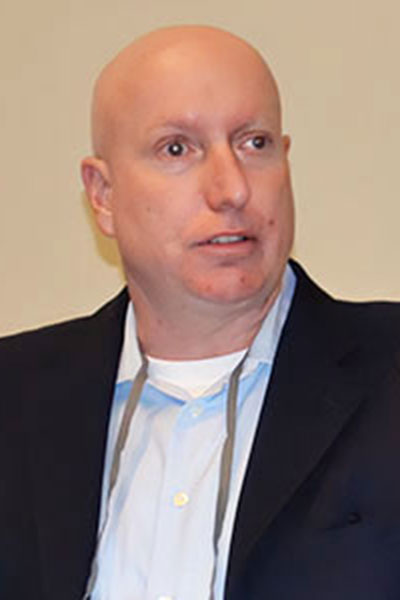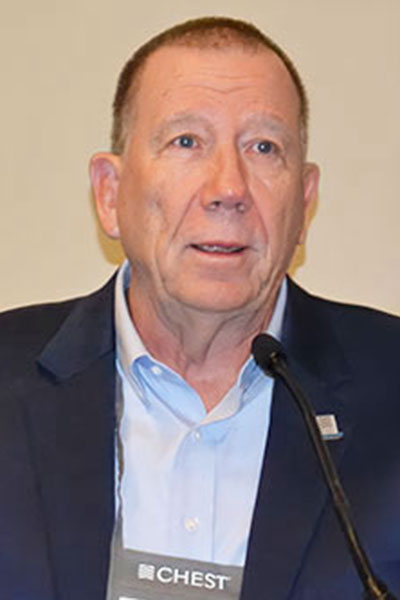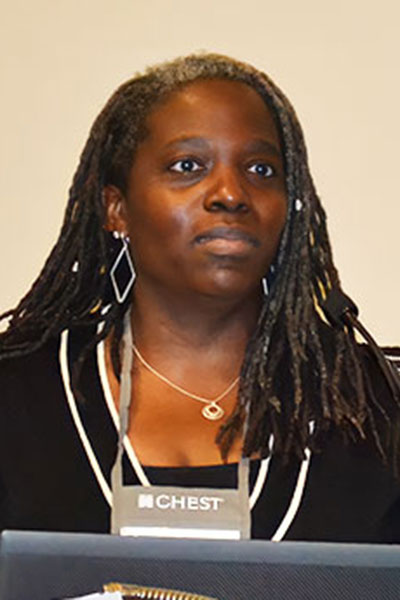Aldophus Kindle, an asthma patient in the Chicago area, always wears a suit to his medical appointments because dressing more formally affords him a different level of respect from his care providers, he says.
LaTisa Foscett-Gonzalez, DNPc, MSN, RN, BA, has more than 25 years of experience as a nurse and clinician. In late 2020, she was hospitalized for 9 days with COVID-19 and other lung health issues. On the fourth day, as her condition was beginning to improve, she informed her care team of her medical background.
“I was treated differently from those 4 days to the fifth day when they found out that I was a clinician,” she said. “Then, things started to change in my world. People started to talk to me, look at me, examine me differently. And that is very powerful.”
Kindle and Foscett-Gonzalez are persons of color who participated in the CHEST Foundation’s Listening Tour 2020. The five-city tour brought together leaders, physicians, and patients from marginalized communities to examine the challenges that patients face in accessing health care, particularly in underresourced areas. Three themes emerged: many of these patients experience a lack of access to health care, encounter a lack of empathy from care providers, and lack trust in the health care system.

During the CHEST 2022 session Lung Health Disparities in America: Lessons from Five Cities About Trust and Empathetic Medicine on Sunday, Ian T. Nathanson, MD, FCCP, chief medical officer of Humana and CHEST Foundation president, shared several lessons learned from the Listening Tour and discussed what CHEST is doing to address the barriers identified in the patient testimonials. He was joined by Paul W. Thurman, DBA, professor of management and analytics at Columbia University, who provided a public health perspective on lung health disparities, and Nneka Sederstrom, PhD, MPH, MA, FCCP, chief health equity officer at Hennepin Healthcare, who discussed the impact of race, ethnicity, and culture on health care conversations and decision-making.
The Listening Tour was conducted in Jackson, MS; Chicago, IL; New York, NY; Phoenix, AZ; and South Texas, primarily in Houston, San Antonio, and Corpus Christi. All five areas are much more racially diverse than the United States as a whole, noted Dr. Thurman.
“As physicians, clinicians, and public health professionals, do we treat the United States, or do we treat these five cities?” asked Dr. Thurman. “The answer is, we tend to treat the United States.”
A better approach is treating each patient based on their individual circumstances. That’s difficult, Dr. Thurman noted, when physicians spend an average of 2.7 minutes with each patient. Dr. Nathanson shared a similarly troubling statistic: patients speak an average of 11 seconds at the beginning of an office visit before their physician interrupts them.

“When you think about how we’ve taken care of patients and everything we’ve learned in dealing with individuals, the message still comes out that we’re not doing as good a job as we think we are,” said Dr. Nathanson. He noted that research began to emerge in the early 1990s indicating that the quality of communication between physicians and patients is frequently identified as a critical factor in the delivery of optimal patient care. Numerous studies since then have reinforced that message.
To improve physician-patient communication and, ultimately, health outcomes, CHEST created a program called First 5 Minutes™, which includes interactive training modules and resources focused on empathetic listening and trust-building communication skills. The program was piloted in June 2022 in San Antonio and will officially launch in the first quarter of 2023.
CHEST 2022 attendees can get a sneak peak of the program during the interactive session Changing Patient Outcomes – 5 Minutes at a Time, Monday, October 17, 11:00 AM – 12:00 PM CT in Room 105AB. During the session, expert faculty from CHEST and the Academy of Communication in Healthcare will share research-proven techniques to help clinicians establish a connection with their patients more quickly and more meaningfully. Session attendees will practice empathetic listening with fellow attendees and learn how establishing trust with patients in the first 5 minutes of an encounter can lead to more effective communication and improve patient adherence.

The first 5 minutes—and even the first few seconds—of an encounter have a strong impact on a patient’s positive and negative judgments about a physician’s communication approach and may facilitate or inhibit all future interactions, said Dr. Sederstrom, referencing a 2011 observational study about first impressions in clinical care.
“If that first impression has such a significant impact on how we can communicate with our patients and how they communicate with us, why aren’t we doing more to address it?” asked Dr. Sederstrom, who suggested acknowledging any and all barriers that might inhibit a patient’s trust, including any perceived racial bias.
“I think that we’re in a space now where these are the honest conversations that have to happen, and people are much more willing to engage in that way,” she said. “To me, that’s how we build empathy, and that’s how we practice empathetic medicine. So, let’s lead with empathy and create more trusting relationships and better communication.”
Join us at CHEST 2024
Connect in person with influential clinicians from around the world—and attend top-tier educational sessions focusing on the most relevant clinical topics. CHEST 2024 will have it all, including optional add-on sessions to customize your learning. Reserve your spot today, and save $100 when you register by September 22.





